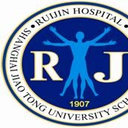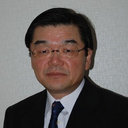Identification of arctigenin as an antitumor agent having the ability to eliminate the tolerance of cancer cells to nutrient starvation.
Cuvinte cheie
Abstract
Tumor cells generally proliferate rapidly and the demand for essential nutrients as well as oxygen always exceeds the supply due to the unregulated growth and the insufficient and inappropriate vascular supply. However, cancer cells show an inherent ability to tolerate extreme conditions, such as that characterized by low nutrient and oxygen supply, by modulating their energy metabolism. Thus, targeting nutrient-deprived cancer cells may be a novel strategy in anticancer drug development. Based on that, we established a novel screening method to discover anticancer agents that preferentially inhibit cancer cell viability under the nutrient-deprived condition. After screening 500 medicinal plant extracts used in Japanese Kampo medicine, we found that a CH(2)Cl(2)-soluble extract of Arctium lappa exhibited 100% preferential cytotoxicity under the nutrient-deprived condition at a concentration of 50 microg/mL with virtually no cytotoxicity under nutrient-rich condition. Further bioassay-guided fractionation and isolation led to the isolation of arctigenin as the primary compound responsible for such preferential cytotoxicity; the compound exhibited 100% preferential cytotoxicity against nutrient-deprived cells at a concentration of 0.01 microg/mL. Furthermore, arctigenin was also found to strongly suppress the PANC-1 tumor growth in nude mice, as well as the growth of several of the tested pancreatic cancer cell lines, suggesting the feasibility of this novel antiausterity approach in cancer therapy. Further investigation of the mechanism of action of arctigenin revealed that the compound blocked the activation of Akt induced by glucose starvation, which is a key process in the tolerance exhibited by cancer cells to glucose starvation.




